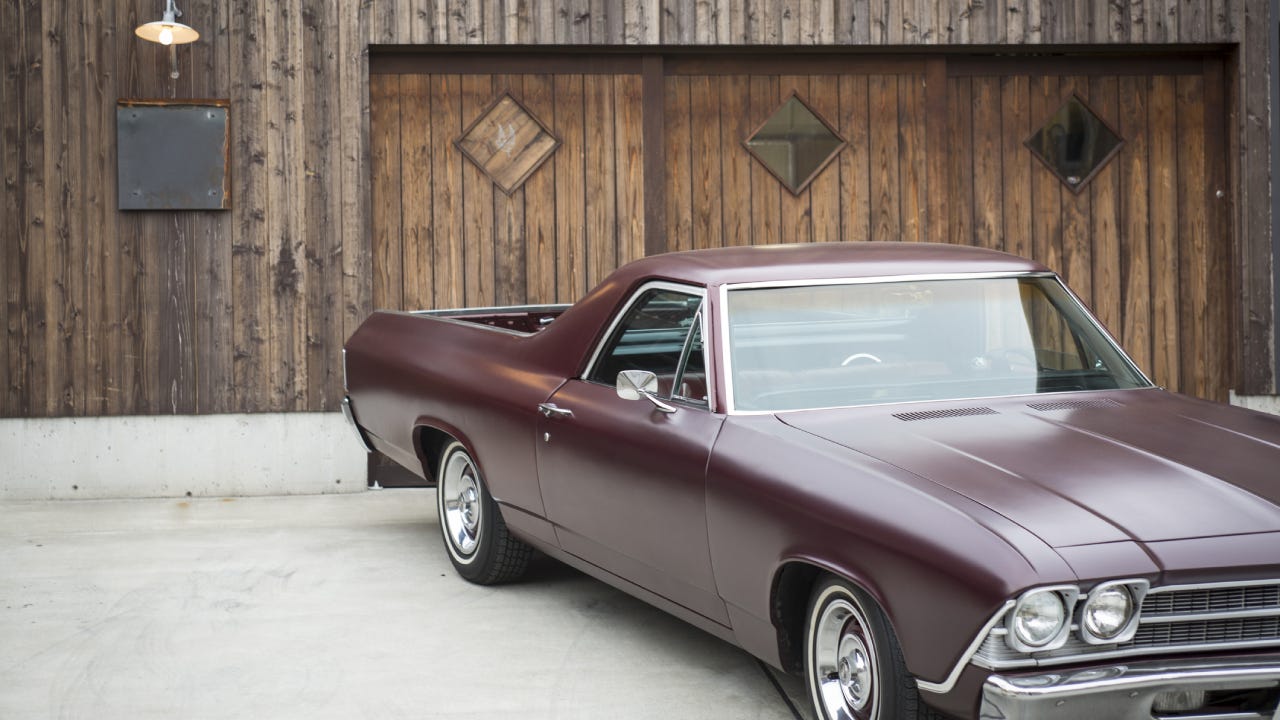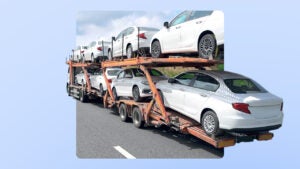Car depreciation: What it is and how it works




Car depreciation is a part of vehicle ownership you can’t avoid. It relates to the rate at which your vehicle loses value, and is determined by several factors, including wear and tear, market demand and manufacturer redesigns. So, whether you currently own a vehicle or are in the market for a new one, it’s worth understanding what depreciation is and how it works so you know what to expect when dealing with insurance if you’re involved in an accident or when it’s time to sell.
What factors impact car depreciation?
Wear and tear is the main culprit of depreciation in vehicles. But that’s not the only reason why resale values dip over time. Depreciation is also influenced by:
- Vehicle usage: Cars aren’t meant to last forever. Typically, the lower the mileage, the more the vehicle is worth, assuming it’s in good condition. Fewer miles means less wear and tear, and the likelihood of being involved in an accident is far lower with limited usage of the vehicle. Every vehicle has a general mileage threshold before major repairs are needed.
- Vehicle age: Unless your vehicle is a classic or collectible, its age also plays a role in the rate at which it depreciates. Older vehicles are typically worth less, particularly if they use parts or systems that are no longer manufactured, or which cost more to obtain.
- Model year: Newer models are typically worth more than their older counterparts. Also, keep in mind that redesigns in subsequent model years, from minor tweaks to complete redesigns, contribute to an older model’s lost value.
- Condition: Again, some wear and tear is normal as your vehicle ages. But if it has been in an accident or has excessive dings, dents, scratches or other damage, it will be worth less than a car that is in mint condition.
How do car insurance companies value cars?
Car insurance companies use what’s referred to as the actual cash value (ACV) to determine what your vehicle is worth. This figure accounts for depreciation, and reflects what the vehicle would sell for in the current market.
The ACV is often confused with the replacement cost of a vehicle, but they aren’t quite the same. The latter offers the amount you’d spend to replace your current vehicle with a new version or a new, comparable model if it is unavailable.
To illustrate how this works, assume you own a car with an ACV of $25,000 and a replacement cost of $31,000. If you’re involved in an auto accident and the vehicle is totaled, the insurance company will only cover the $25,000 if you have ACV coverage. If you have an outstanding loan or lease balance on the vehicle, unless you have gap insurance, you’d be on the hook for the remaining $6,000 owed to the auto lender.
How much do cars depreciate?
On average, cars lose around 10 to 15 percent of their value per year, with higher depreciation rates near the beginning of the vehicle’s lifespan. But some cars lose value faster than others. How much your vehicle will depreciate depends heavily on its make, model, model year, mileage and powertrain, among other factors. In general, luxury vehicles and electric cars have the highest depreciation rates, while trucks and hybrids tend to retain their value better.
A recent study by iSeeCars found that trucks have an average five-year depreciation rate of around 40 percent, while EVs depreciate by nearly 60 percent in the first five years of ownership. This means your vehicle could stand to lose close to 50 percent or more of its value before you’ve fully paid off your auto loan or your lease agreement expires. That’s why options like gap insurance and new car replacement coverage exist to offer financial protection for this major investment while depreciation is at its highest rate.
New car depreciation
New vehicles typically start depreciating the moment you leave the dealer’s lot. According to Kelley Blue Book, new cars lose roughly 30 percent of their value in the first two years of ownership. New cars generally depreciate more quickly than older ones, and it’s true that any vehicle will lose value more rapidly during the first five years of ownership.
Insurance rates for new cars are also higher, reflecting the initial value that’s lost quickly in the first year of a car’s life. For some, the rapid depreciation rates of new cars may be a reason to avoid buying new and opt for a used vehicle instead. Others choose to lease their car rather than buying it. An auto lease allows individuals to drive a new car without taking on the financial burden of car depreciation by simply paying to use the vehicle during its period of fastest depreciation, and returning it when it’s lost much of its value. Keep in mind, though, that lease agreements typically require gap coverage in case the vehicle faces a total loss.
Used car depreciation
Depreciation rates slow as a car’s age increases, with the highest rates during the first couple years of ownership. Even a gently used two-year-old model may cost significantly less than a brand new model of the same vehicle, because the older car may have already lost as much as 40 percent of its value.
Buying a used vehicle could reduce the upfront costs of purchasing a car as well as long-term expenses like insurance, since the cost of full coverage insurance is based in part on your vehicle’s ACV. However, used cars may come with greater repair costs, since the wear and tear that contributes to depreciation will also affect the car’s mechanical systems.
Car depreciation is an inevitable part of the cost of car ownership, but that doesn’t mean you have to be at its mercy. You can minimize depreciation and preserve your car’s resale value by properly maintaining it, driving with caution or considering quality used cars if you’re looking to buy.
Taking good care of your car helps minimize wear and tear and allows your car’s parts and systems to last as long as possible. Safe driving habits can also help to preserve your vehicle’s lifespan by reducing overall wear and tear.
Frequently asked questions
Why we ask for feedback Your feedback helps us improve our content and services. It takes less than a minute to complete.
Your responses are anonymous and will only be used for improving our website.
You may also like

What is a collision deductible waiver?





